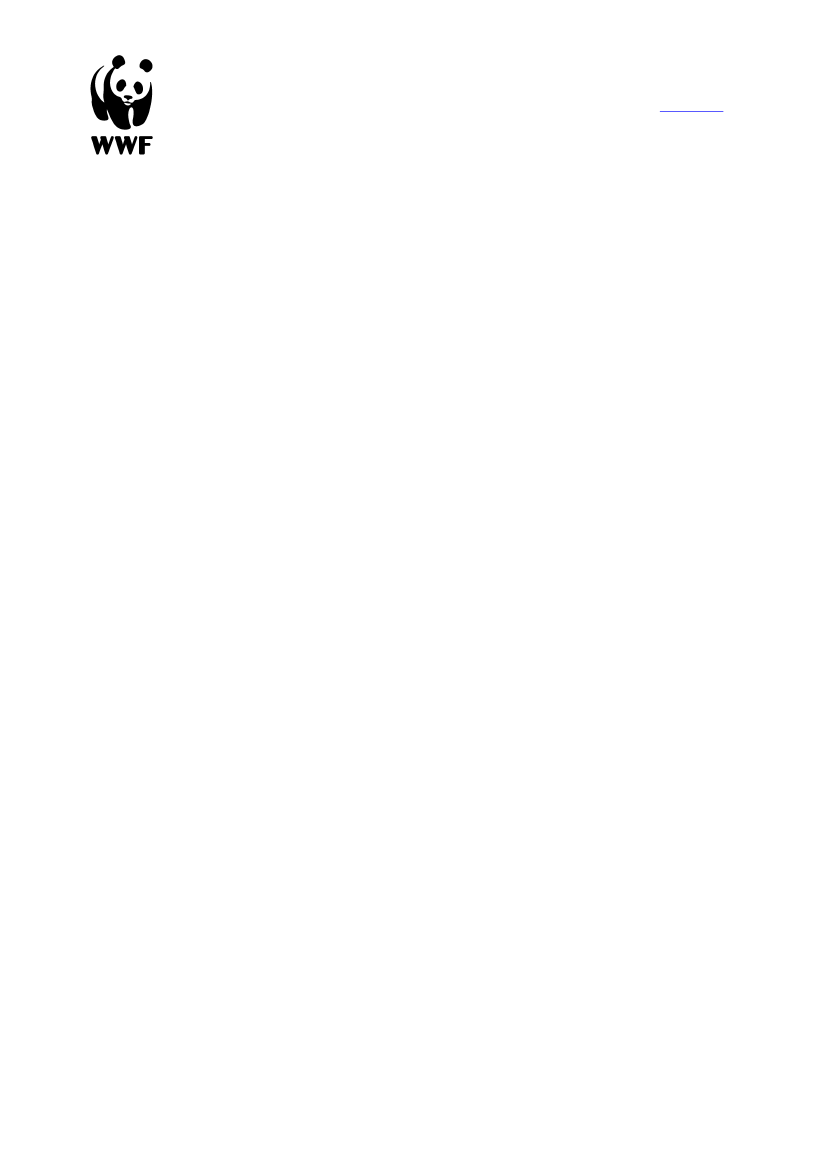
WWF Verdensnaturfonden
Ryesgade 3 F
2200 København N.
Danmark
Tel: +45 35 36 36 35
Fax: +45 35 24 78 68
www.wwf.dk
wwf@wwf,dk
Ministeriet for Fødevarer, Landbrug og Fiskeri
Slotsholmsgade 12
1216 København K
Att: Fødevareminister Eva Kjer Hansen
København 1. oktober 2008
Til Fødevareminister, Eva Kjer Hansen
Re: Baltic Sea TAC and Quotas 2009
I am writing to you regarding the Fisheries Council meeting on the 27-28 of October where the TAC and quota for the
Baltic Sea commercial fish stocks will be decided. WWF urges the Council of Fisheries Ministers to set the TAC and
quotas for 2009 according to the International Council for the Exploration of the Sea (ICES) scientific advice.
WWF TAC recommendations for the Baltic Sea fish stocks:
Eastern cod stock TAC should be set at 44 580 tonnes to facilitate increased recovery.
Western cod stock should be set at 13 700 tonnes to reduce the high fishing pressure.
With no management plan in place the TACs for the pelagic species must be set according to ICES advice.
Maintaining a low fishing effort is essential for the salmon stock population’s survival.
With the unexpected increase in the eastern cod spawning stock biomass it is vital that you regard this as a golden
opportunity to manage the stock prudently to ensure the stock, along with other fish stocks in the region, can reach a
stable level. Facilitating an increased recovery will guarantee in the long-term a sustainable fishery as well as a socio-
economic stability for the fishing industry.
However WWF believes two important aspects must still be addressed along with setting the TAC to achieve
sustainable fisheries:
i)
further reduce the overcapacity in the Member States
ii)
cease all illegal fishing practices by establishing stronger regional cooperation with cross border control and
enforcement
The implementation of fishing restrictions, recovery plans and technical measures will remain futile as long as
fisheries managers and decision-makers do not address these key problems. Only by adopting such measures will the
chance to implement the ecosystem-based management of fisheries and safeguard the resource the industry is
dependent on be realised. The uncertainty in future environmental change and the current observed ecosystem shift in
the Baltic Sea underlines the necessity to act according to the precautionary approach to preserve the ecosystem’s
structure and function.
WWF urges that you take this opportunity to improve the health status of the Baltic Sea by following ICES advice.
WWF hopes that with your personal support and leadership you will ensure a sustainable future for the Baltic Sea
region’s fisheries and ecosystem. Please find enclosed WWF’s position paper on the 2009 TAC and quota of the
Baltic Sea fish stocks.